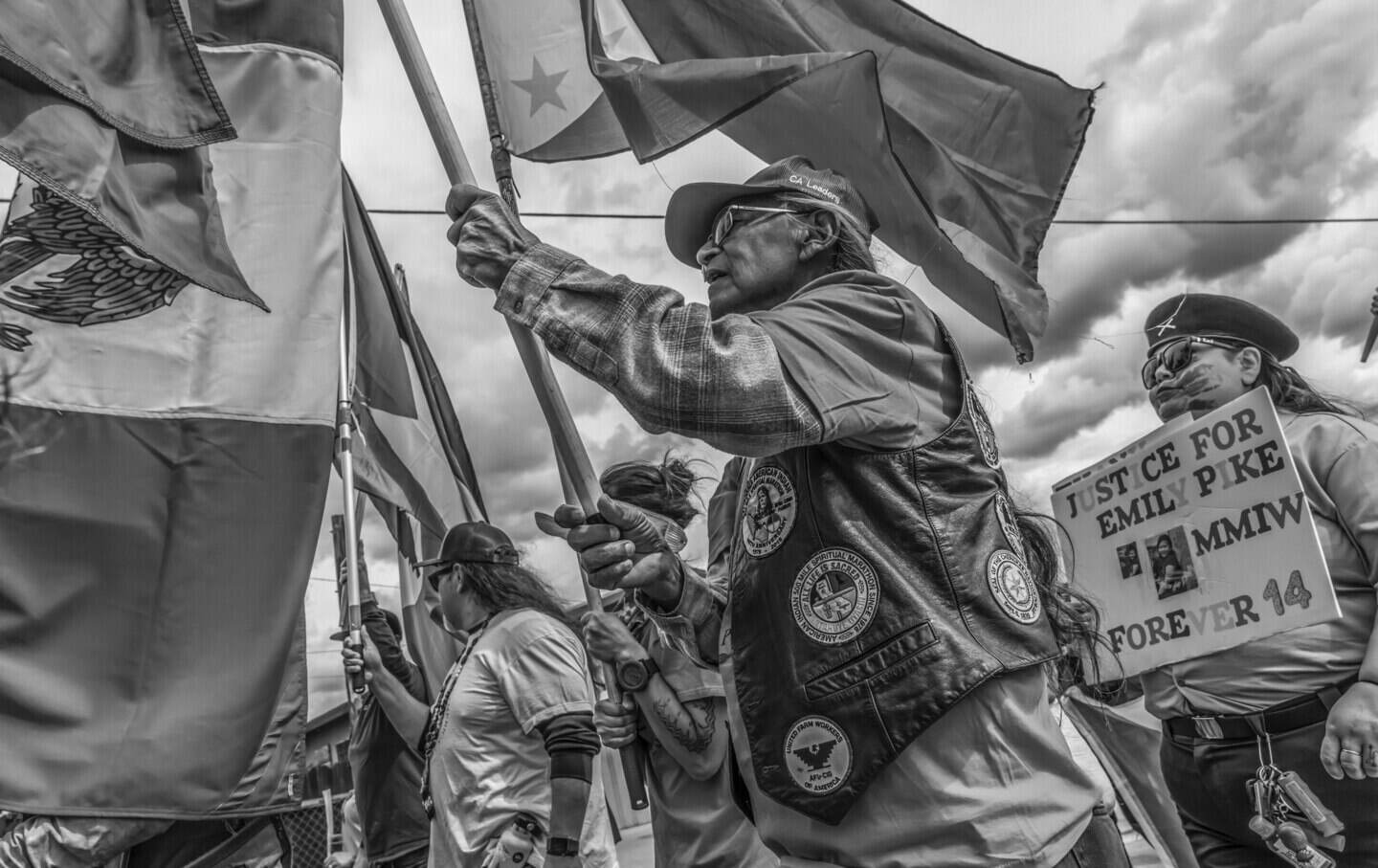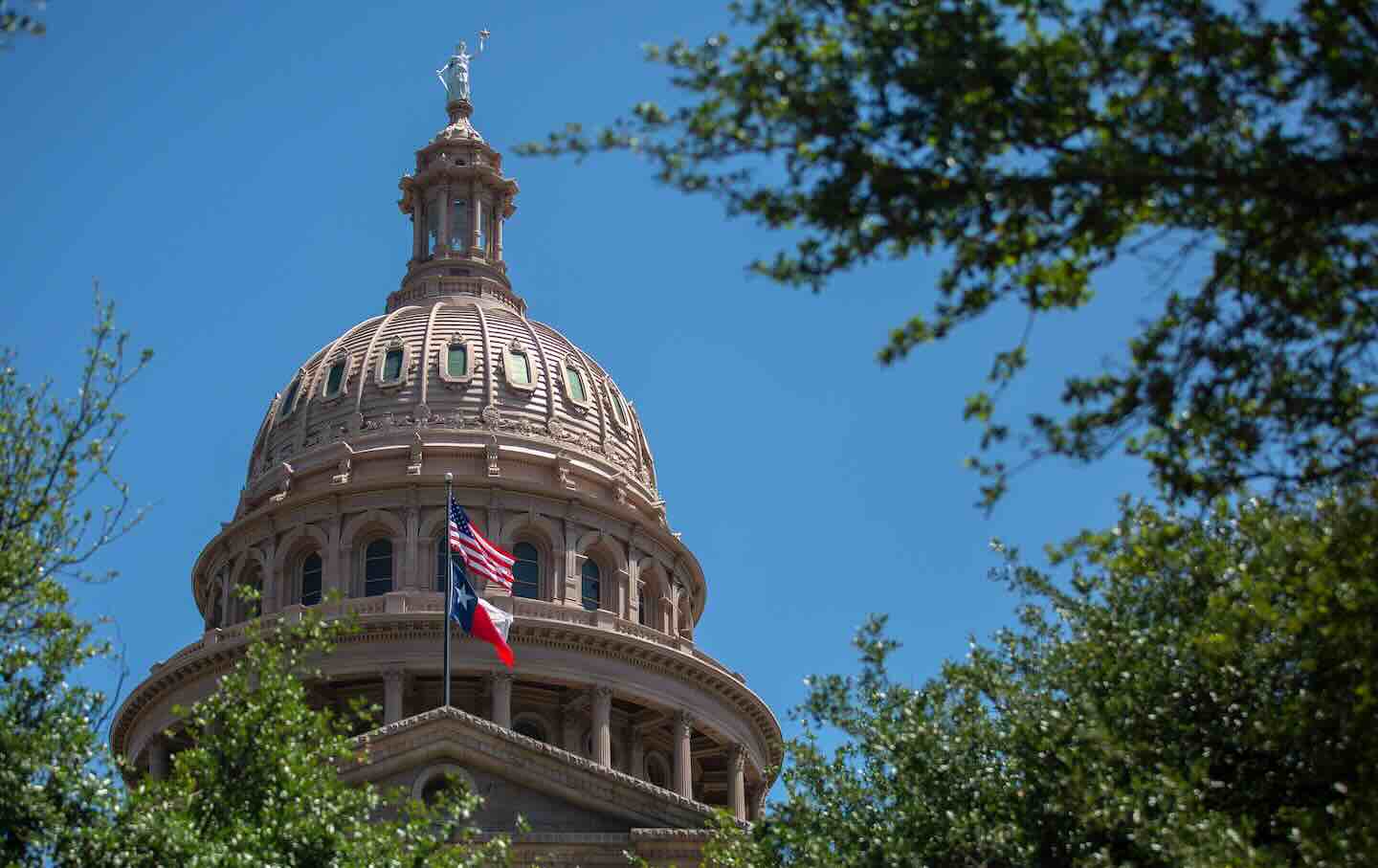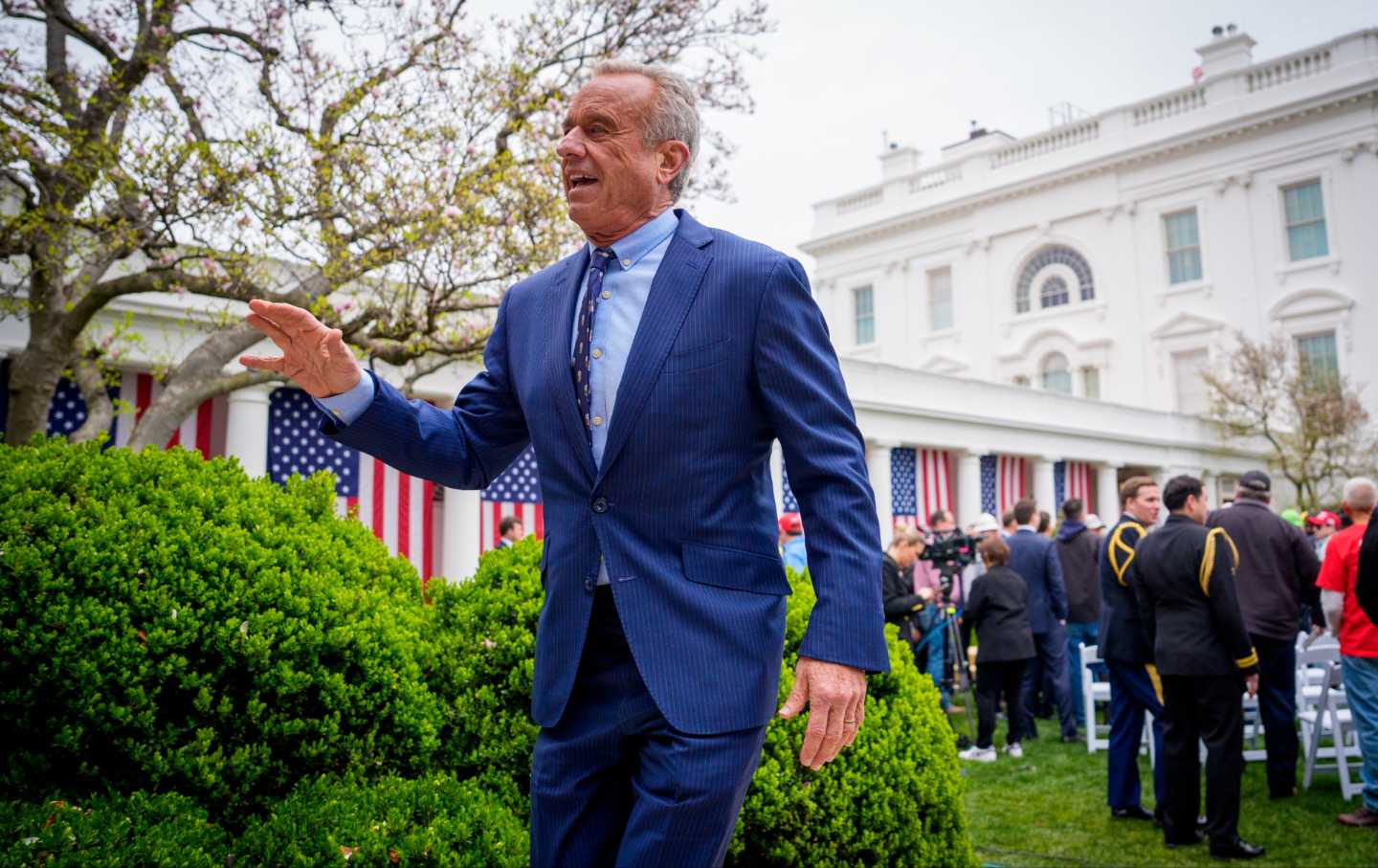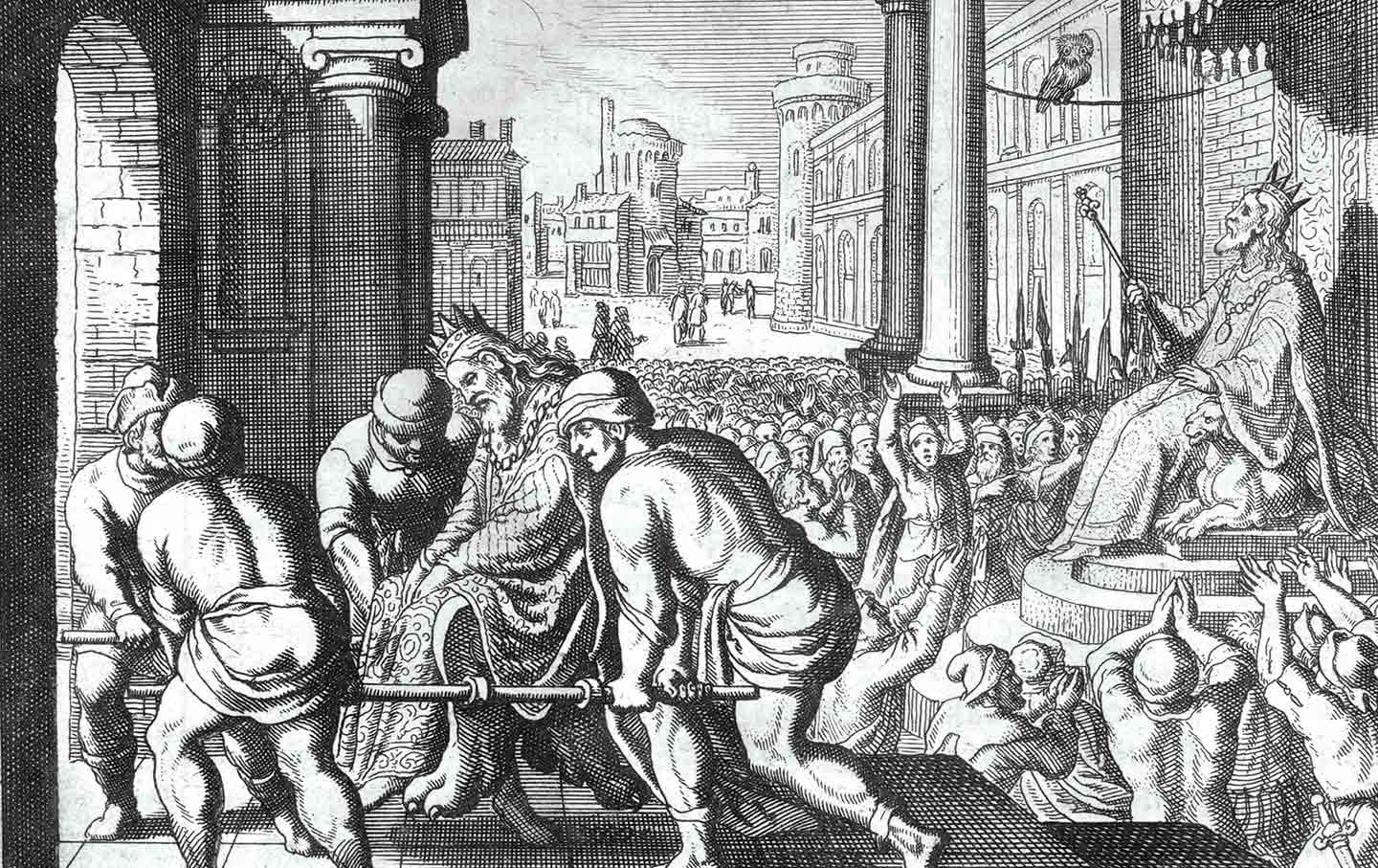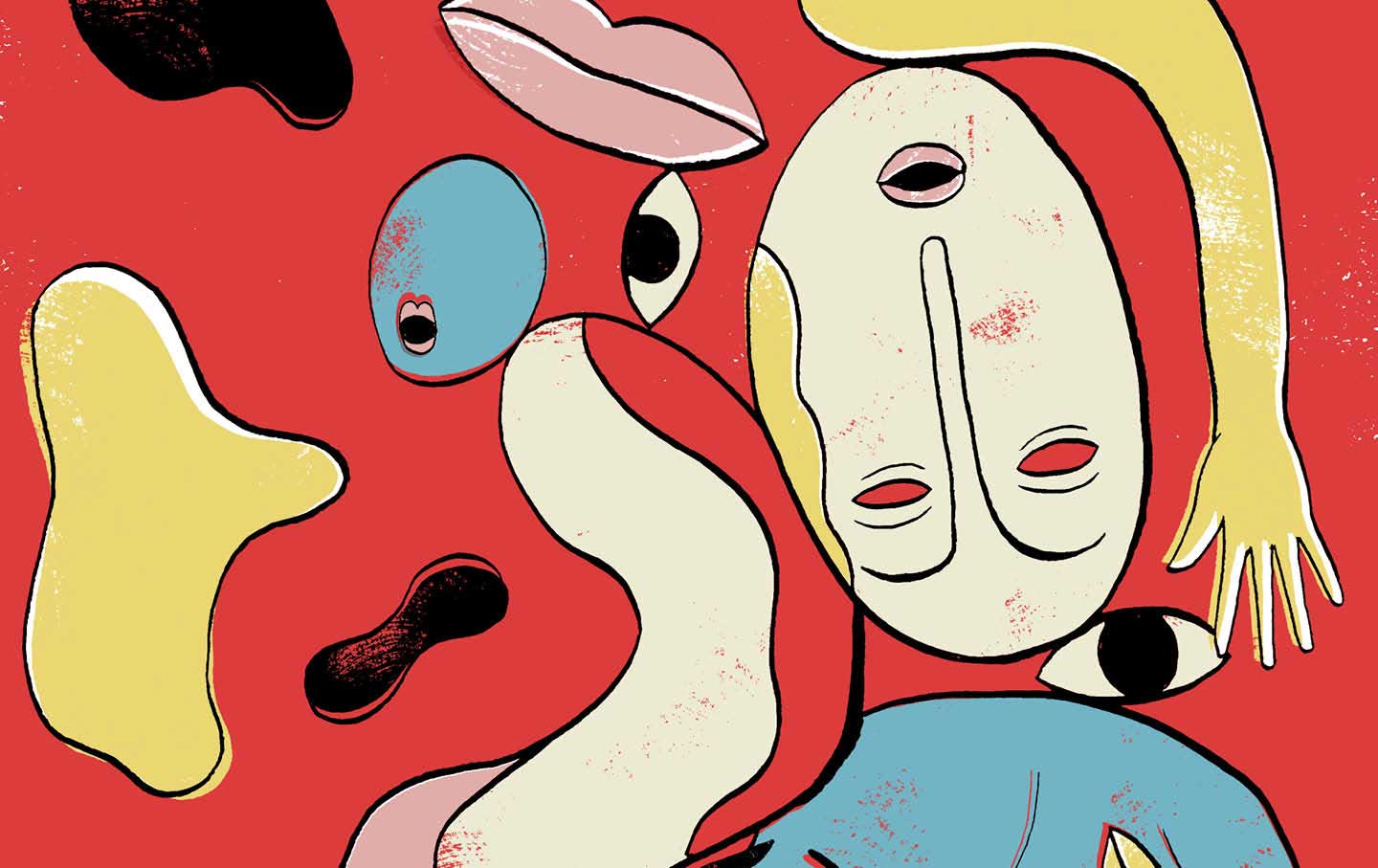Clarence Thomas Broke the Law. Why Is He Not Being Prosecuted?
The debate about whether Supreme Court justices are bound by ethics rules drew attention away from the fact that Clarence Thomas’s conduct violated federal laws.
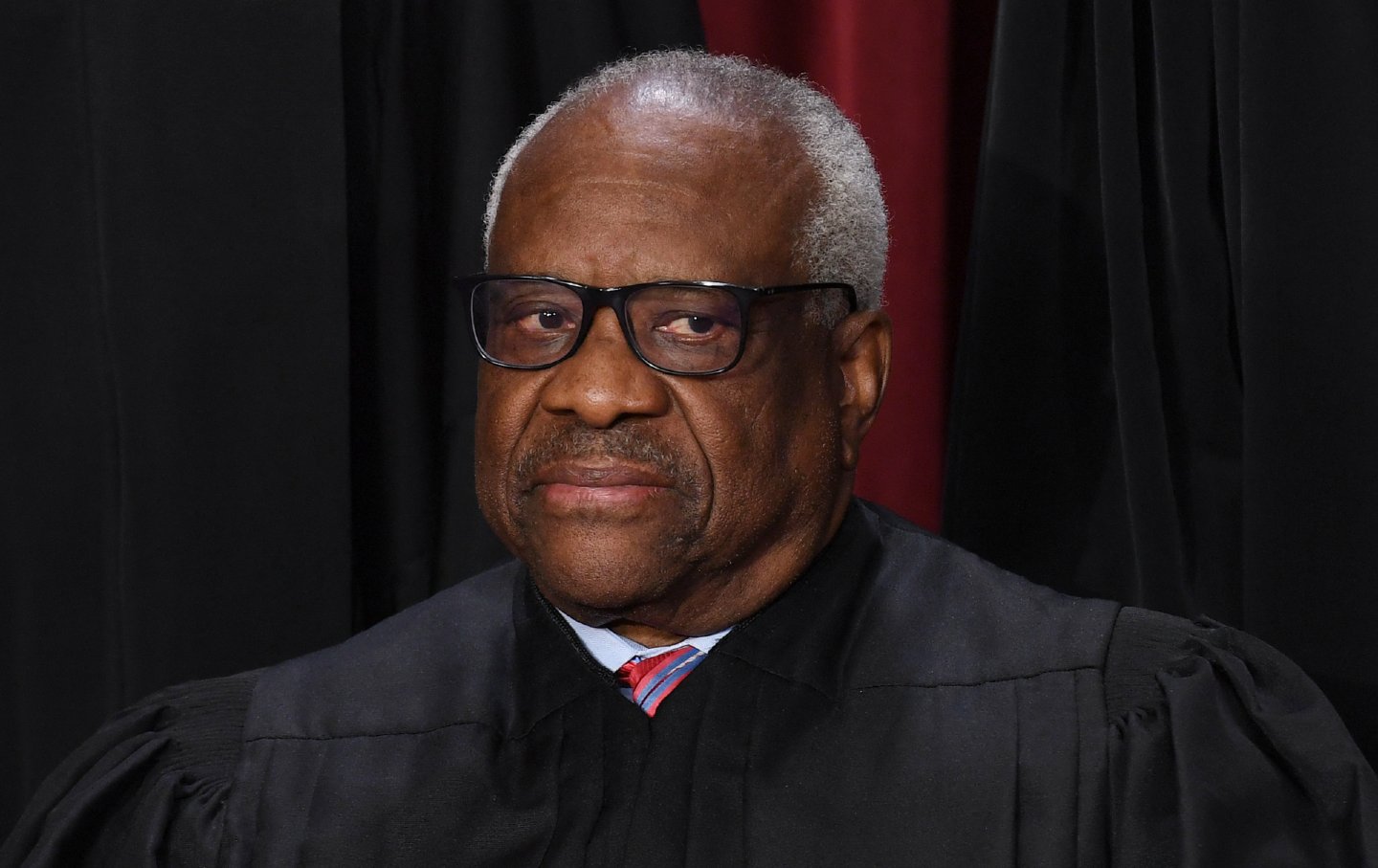
Associate US Supreme Court Justice Clarence Thomas poses for the official photo at the Supreme Court in Washington, D.C., on October 7, 2022.
(Olivier Douliery / AFP via Getty Images)On November 13, 2023, the Supreme Court adopted the Code of Conduct for Justices of the United States Supreme Court.
It did so in in the wake of revelations of lavish gifts to Justice Clarence Thomas by wealthy conservatives over two decades. A small group of conservative billionaires enabled Thomas to enjoy a lifestyle that he could not otherwise afford and which he concealed. The chief justice insisted that the court is not bound by the existing Code of Conduct for United States Judges or other statutes and rules applicable to lower federal judges, so whether the gifts and the failure to disclose them violated anything other than unenforceable norms is said to be unclear. The court’s announcement of the new Code of Conduct was a concession to criticism by lawmakers and others, although it contained no process for sanctioning violators. It has no relevance, however, to whether Thomas’s concealment of the gifts and the donors violated the law.
The debate about whether the justices were or should be bound by any ethics rules drew attention away from the fact that Thomas’s conduct violated federal laws specifically requiring him to disclose the gifts. Thomas was legally obliged to disclose the gifts as well as the donors and should be prosecuted for failing to do so.
The Ethics in Government Act requires all covered officials, explicitly including Supreme Court justices, to disclose gifts on forms designed for that purpose, known as “OGE [Office of Government Ethics] forms.” Specifically, covered officials must file reports which include a “full and complete statement” with respect to
the identity of the source, a brief description, and the value of all gifts aggregating more than minimal value…or $250, received from any source other than a relative of the reporting individual…except that any food, lodging or entertainment received as personal hospitality of an individual need not be reported…
5 U.S.C. § 13104 (a)(2)(A)
Personal hospitality is defined as
hospitality extended for a nonbusiness purpose by an individual, not a corporation or organization, at the personal residence of the individual or the individual’s family, or on property or facilities owned by that individual or the individual’s family.
5 U.S.C. § 13101(14)
The forms require a certification that the information provided by the filer is “accurate, true and complete to the best of my knowledge.”
ProPublica has revealed that over two decades Harlan Crow, Charles and David Koch, the Koch network, Wayne Huizenga, David Sokol, and Paul Novelly provided Thomas with 38 vacations, 26 private jet flights, eight flights by helicopter, a dozen VIP passes to sporting events, attendance as a guest at the exclusive Bohemian Club, travel on a private jet to and lodging at Koch network summits at resorts in California tuition for his nephew in a private school, and a $267,000 loan used to purchase a luxury recreational vehicle. Crow even purchased the home in which Thomas’s mother lived and then allowed her to live there rent-free. Thomas reported none of this.
Thomas claimed that his failure to report the gifts was due to bad advice from as of yet unidentified colleagues or advisers. That excuse is hard to square with the plain language of the statute. There is not much to argue about in the meaning of “gift.”
If Thomas contends that he understood all the things of value described above as “personal hospitality,” that may satisfy some ideological supporters, but it will not pass the straight-face test. Putting aside the private jets, yachts, and resorts, there is no reasonable interpretation by which sports tickets and guest status at Bohemian Grove and at the Koch network—let alone the satisfaction of the outstanding loan on the RV, tuition for his nephew, and free rent for his mother were “personal hospitality.”
The magnitude of the benefits and the period during which they were bestowed is grotesque. There may be innocent explanations, but the most obvious conclusion is that the justice engaged in a decades-long scheme to conceal a more luxurious lifestyle than he could afford and hid the identity of persons who provided it. It has recently been reported that he complained bitterly in 2000 and thereafter that his salary was unfairly low and that he was threatening to resign. Whether he chose not to disclose the gifts or made a mistake is certainly an important question, but it is relevant that he reported similar, if less significant, largesse during earlier periods, making it harder to believe that he did not know what he had to report.
Intentional failure by public officials to disclose gifts, including forgiven loans, on the OGE forms is so clearly criminal that it is prosecuted as a felony under the False Statements Statute, 18 U.S.C. § 1001, particularly subsection (a)(1). That section makes it a crime to, “falsif[y], conceal, or cover up by any trick, scheme or device a material fact.”
Leaving a gift or loan off the form is the same as making an affirmative false statement that there was no such gift or loan. Thomas formally certified that his financial disclosures on the forms were “accurate, true and complete to the best of my information and belief.” The omission and the accompanying certification of completeness make the form a false statement. Moreover, on occasions when he disclosed no gifts, he marked a box attesting that he had “None.”
Criminal liability for these omissions is not a new concept. In 2008, the chief of staff of the General Services Administration, David Safavian, was indicted for multiple felonies arising out of a vacation provided to him by lobbyist Jack Abramoff. The third count of the indictment alleged that Safavian made a false statement when he failed to disclose on his OGE form the actual value of travel and lodging provided by the lobbyist. Safavian was convicted and sentenced to prison on that count as well as four others.
It was also the basis for a 2021 non-prosecution agreement with former Secretary of Transportation Ray LaHood in 2021. The US attorney for the Central District of California threatened to prosecute LaHood for failing to disclose a $50,000 loan on his OGE form and LaHood agreed to pay a fine and repay the loan to avoid prosecution. LaHood explained that he did not disclose the loan because he did not want to be associated with the lender.
Popular
“swipe left below to view more authors”Swipe →In 2005, the Department of Justice indicted Erik Blowers, an FBI agent, under 18 U.S.C. § 1001 for failing to include two free trips to Las Vegas on his OGE form and in 2016, Leonardo Silva, also an FBI agent, was charged with a similar crime for failure to disclose numerous trips on private planes paid for by others.
The Office of Government Ethics publishes a survey of prosecutions implicating the conflict of interest statutes conducted since the law took effect. That list includes 69 cases involving inaccurate financial disclosure forms. Seven of those involved undisclosed free trips and 20 involved undisclosed gifts. The OGE forms are taken seriously, and they are intended to be. They force public officials to disclose relationships with third parties exactly like the ones Thomas enjoyed and kept secret—relationships that might constitute conflicts of interest or influence the performance of official duties.
Whether Supreme Court justices are obliged by former or present ethical codes to comply with disclosure laws is irrelevant to whether failing to report gifts on disclosure forms is a crime. Omissions of material information from disclosure forms are serious violations of law, and they subject the people who commit them to serious punishment.
If anyone other than a Supreme Court justice had so falsified their financial disclosure form, they would have been indicted long ago, or at least subjected to a searching investigation. The facts available should trigger immediate commencement of a criminal investigation. Thomas should not be treated differently from the many others who concealed less valuable gifts. His position as a justice on the highest court in the land should require more candor, not less, in reporting the kind of relationships the Ethics in Government Act requires be made public. If those responsible for enforcement of the law determine not to pursue his conduct, they need a better reason than that his status makes him immune.

